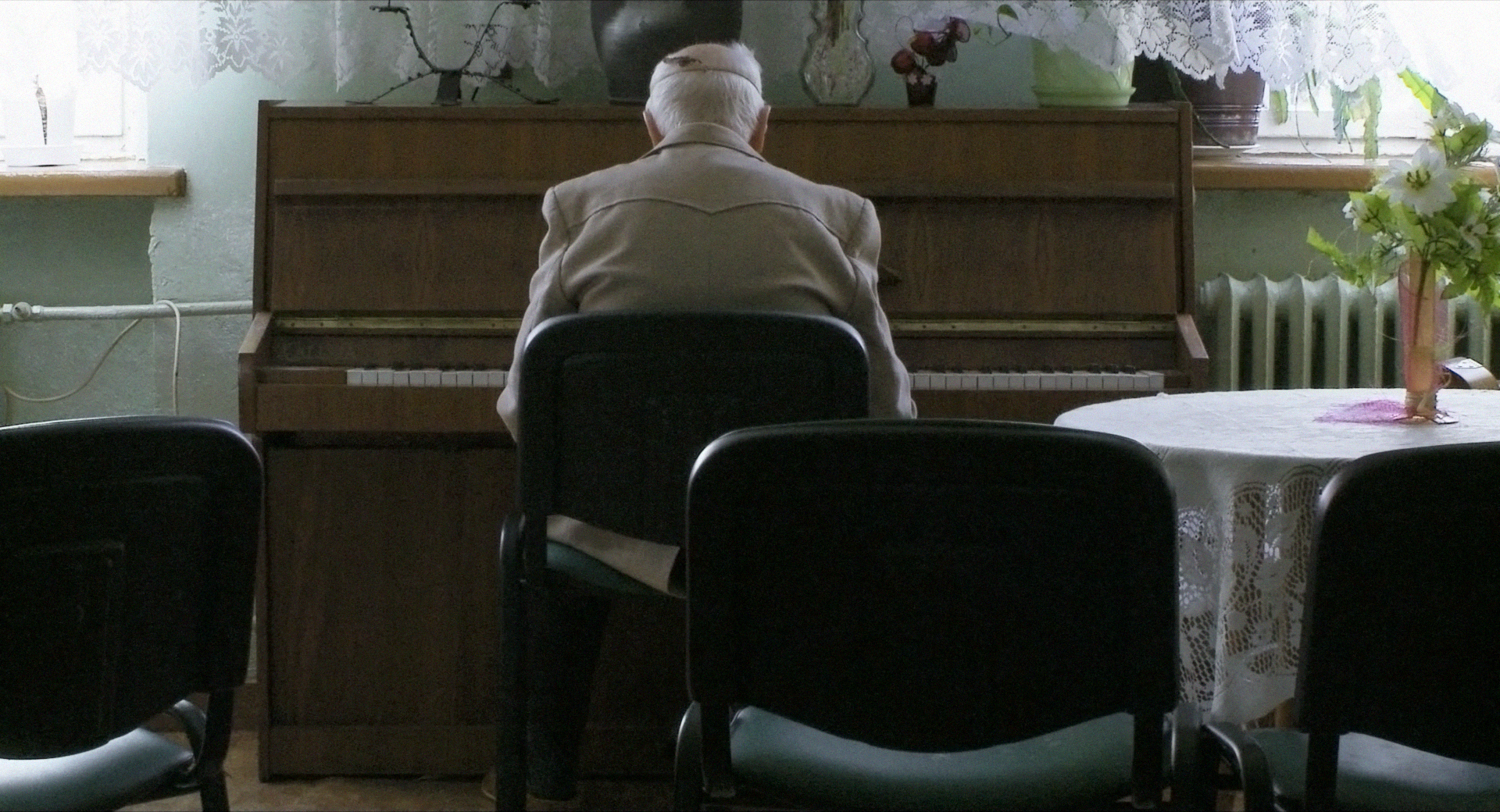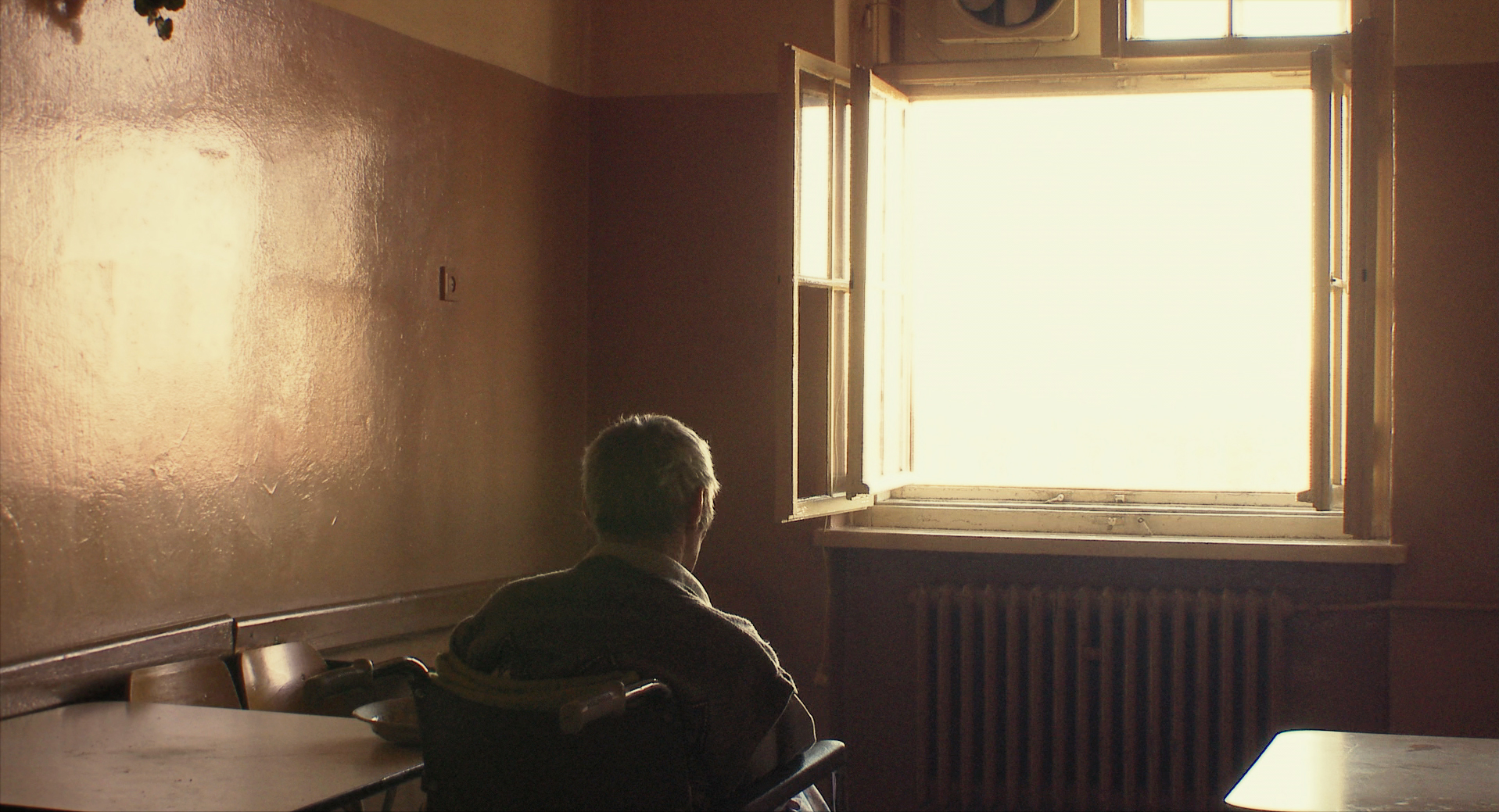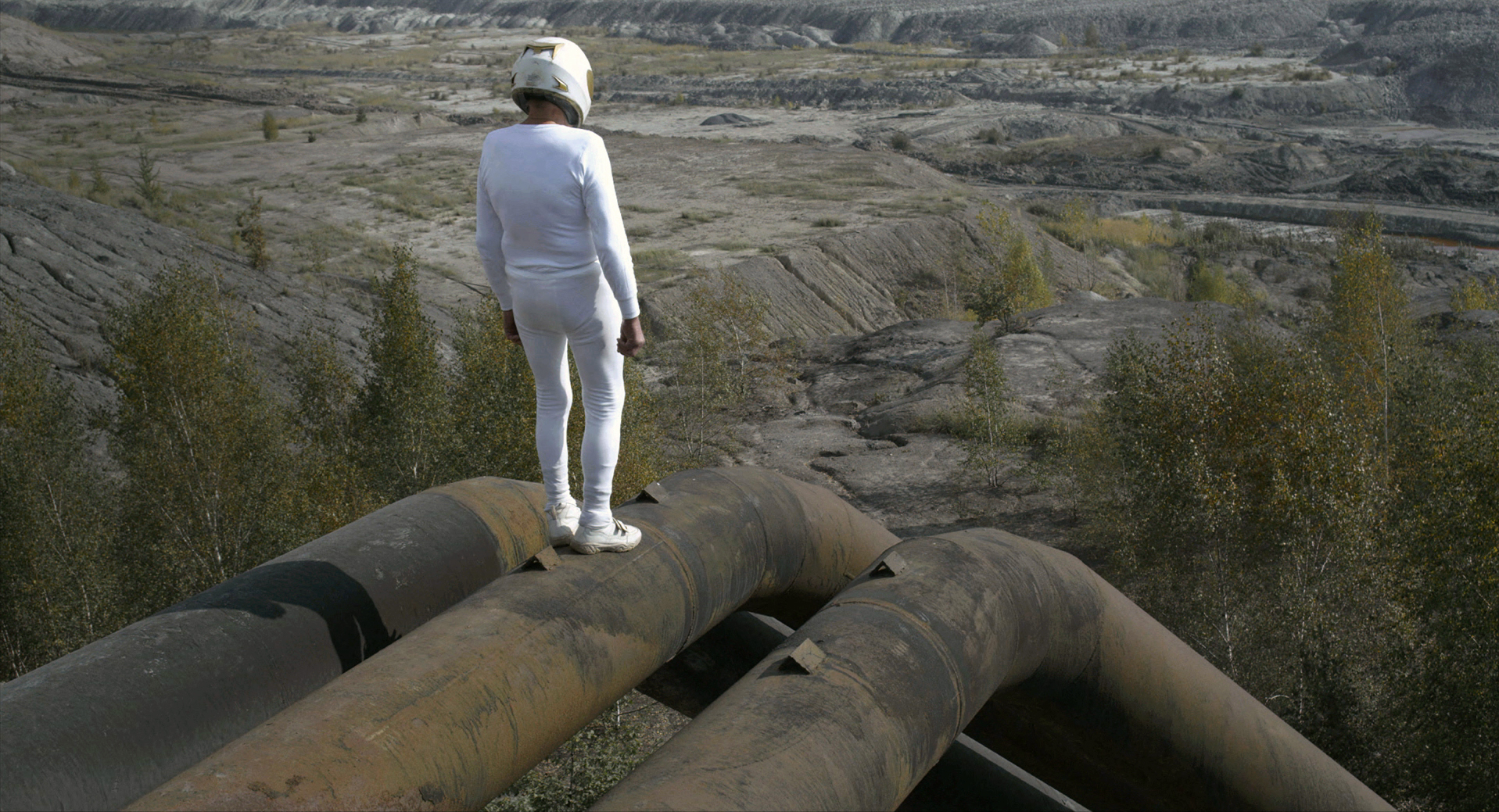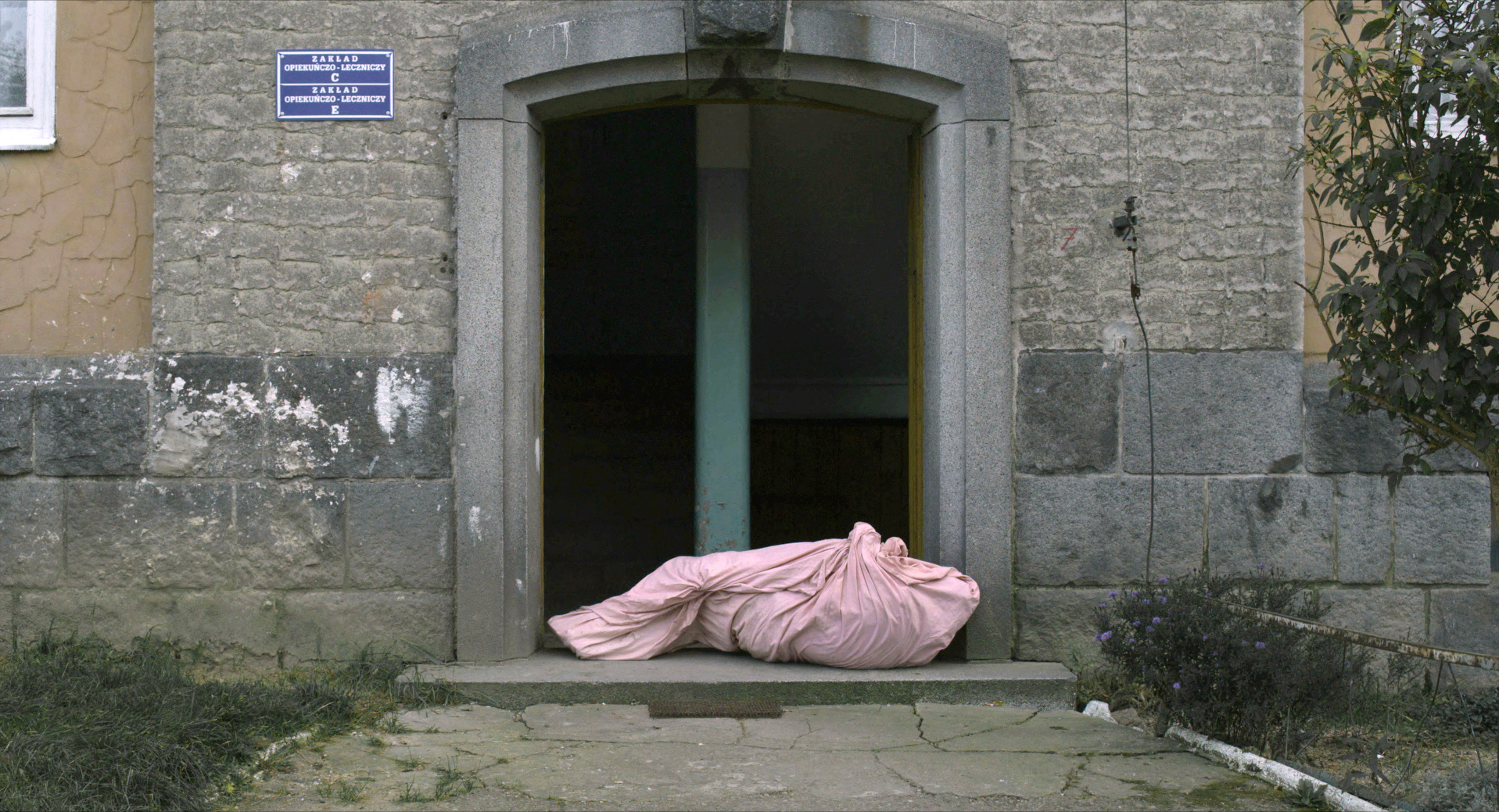SIENIAWKA
126 min / DCP / 1:1.85 / Digital / Dolby 5.1 / Germany / 2013
synopsis
SIENIAWKA is a journey into the irrational subconscious of humanity. STEFAN attempts to make his way through a post-industrial no-man’s land. An encounter with a stranger forces the line between reality and imagination to become blurred. The future and the past become intertwined. Visions of another time emerge from Stefan’s mind. The cold-blooded surgeon used to work in the dissecting room. There was a cinema where everyone would go on the weekend. A state of complete delirium caused a young man's heart to stop beating. In drifting through memory and the imaginary, Stefan witnesses death, mental illness and the margins of humanity in a passing world that resembles our own. All that remains are ruins - everything begins to dissolve. The concrete world no longer resembles the one that he was forced to leave. Internal chaos is mirrored by external chaos.
director's statement
At the heart of the village SIENIAWKA lies a “hospital for the treatment of mental illness, nervous disorders and alcoholism“. It was founded in 1964 on the site of a Nazi labour camp. Today, one half of the camp is occupied by “the hospital“, the other half functions as living quarters for Polish families.
The hospital served as a point of departure from which the whole film developed.
As the story evolved, it grew to include the immediate surroundings and the people living,
working or being treated there. My cinematographic involvement and indeed the need
to be involved with this unique place originate from the time I spent there during various phases of my life.
I have a very strong, close, emotional relationship with it. My aunt worked at the hospital for forty years
(twenty of which were in the position of Alternate Director), whilst my grandfather was Administrative Director
for the same period of time. Due to my familiarity with the hospital and the village, I was basically given carte blanche
by the current hospital director to move freely on site and on the wards.
These are usually very hard to access or film due to the secure and restricted nature of this type of institution.
The word Sieniawka, although officially referring to the name of the village, is used colloquially to refer to the hospital.
When someone says you will end up in Sieniawka, that person means you will eventually go insane and be put away there.
This linguistic generalisation - blurring the line between the mentally ill and the sane, chaos/order or nature/civilization
- inspired me to conceive and realise this film there. I wanted to explore these ambivalent topics cinematographically
and in relation to a rapidly changing post-communist Polish society, and I wanted to do this by revealing and focusing
on what is being left behind and marginalised, what is not being talked about and what is in all of us – the irrational subconscious of humanity.
Society in itself is an institution which constantly standardises human beings. Can ultimate freedom only come from death?
I wanted to make a film that is a journey through memory and the imaginary in a world that resembles our own, but is not necessarily ours.
media (press)
press kit download (.pdf)
festivals (selection)
AWARDS
FiD - Marseille / Best First Film
Arte Documentary Film Prize / Duisburger Filmwoche
Honorable Mention / Forum Doc Belo Horizonte
WORLD PREMIERE
Berlinale, Forum
credits
FILMMAKERS
Sound Mixing/Mastering
Alexander Leser
ProTools Operator
Tobias Bilz
Color Grading
Jorge Piquer Rodriguez
Title Design
Pierre Rousteau
Graphic Design
Salma Shamel
Executive Producer
Andreas Louis (DFFB)
Producers
Marcin Malaszczak
Georg Tiller
Michel Balagué
Production
Mengamuk Films & DFFB
with the financial support of Polish Film Institute
Director
Marcin Malaszczak
Screenplay
Marcin Malaszczak
Cinematography
Marcin Malaszczak
Assistant Director
Steven Williams
Assistant Camera
Steven Williams
Kristina Paustian
Kevin Schulze
Sound Engineering
Eric Menard
Tobias Rüther
Leo Knauth
Editing
Stefan Stabenow
Maja Tennstedt
Sound Design
Jochen Jezussek
CAST
Stefan Szyszka
Stanisław Chęmiński
Ryszard Ciuruś
Tomasz Członka
Kazimierz Duchaczek
Tadeusz Gubała
Robert Gajowy
Jarek Harbart
Jerzy Iwanczewski
Władysław Jarmulak
Ernest Kalbarczyk
Bogusława Kasprzak
Jerzy Kozak
Stanisław Kret
Antoni Młyńczyk
Zbigniew Skrabek
Stanisław Szatan
Wiktor Szatkowski
Jerzy Szlosar
Franciszek Wilk
Franciszek Zajdel
Henryk Zamajski
Leszek Żurawski
stills










